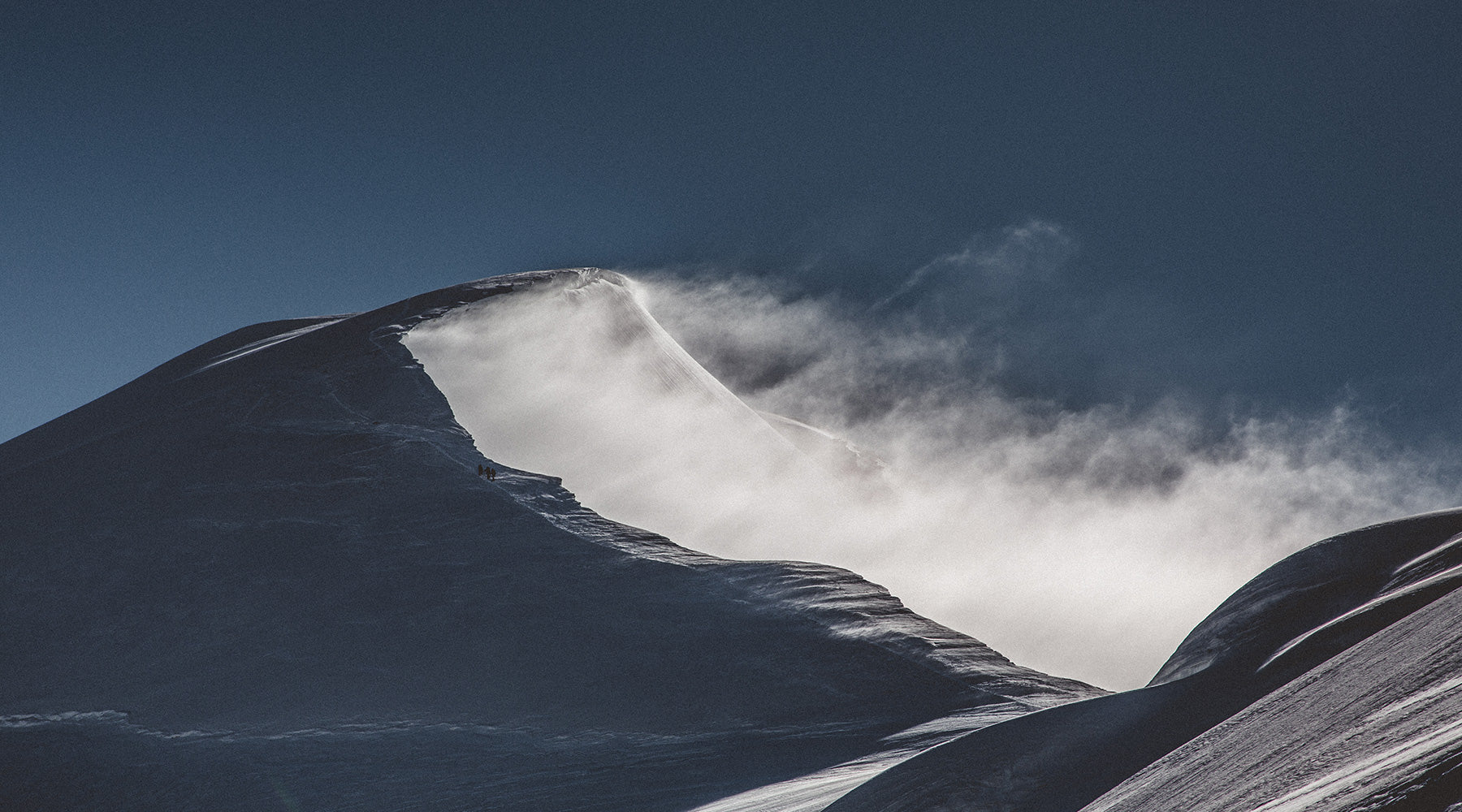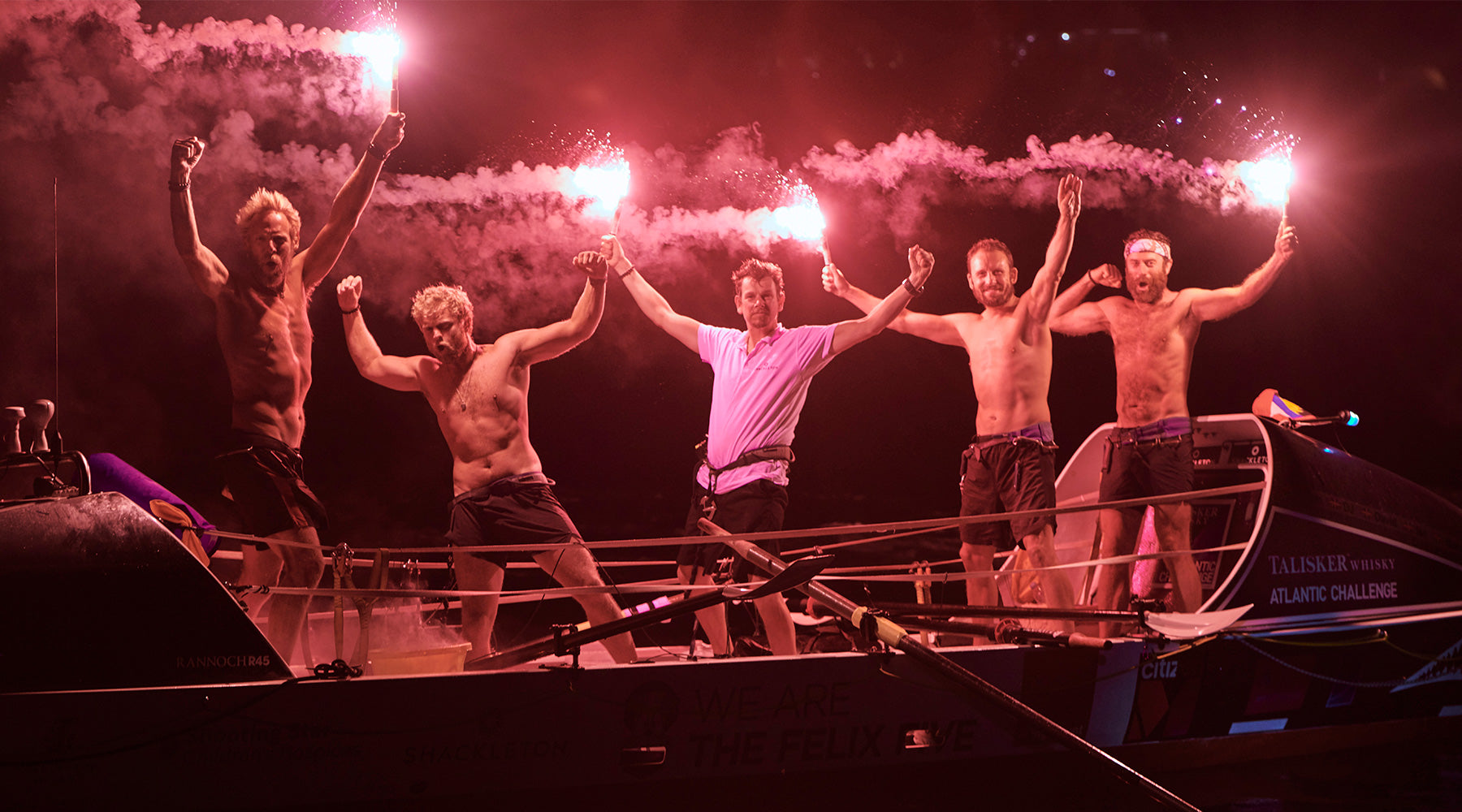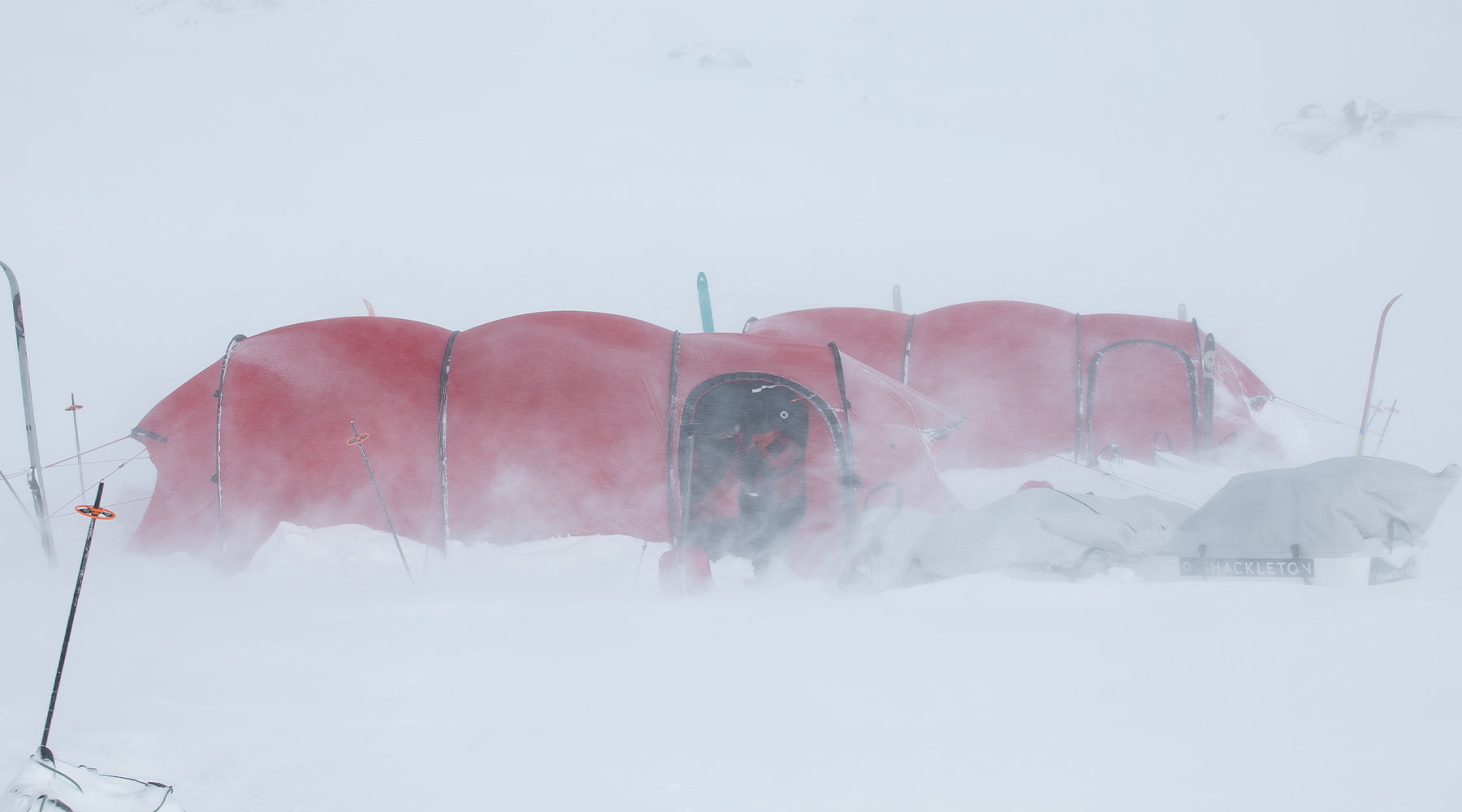
In Extremis Mindset // What It Takes (1/3)
Why do explorers explore? And how do they deal with isolation in some of the most challenging environments on earth? In this three-part series, we speak to adventurers, endurance athletes and polar explorers who have removed themselves from civilisation for long periods of time and put their minds and bodies through gruelling experiences.
We currently all face uncertainty. And while exploration is self-imposed and meticulously planned, there are parallels that can be drawn between this uncertainty and exploring the lesser-known regions of the planet: the apprehension of entering the unknown; the feeling of isolation; the mental challenge of a more stripped-back existence; and how best to react to the situation to not only minimise stress and pain but take positives from the experience.
In a three-part series, we speak to adventurers, endurance athletes and polar explorers who have taken themselves away from civilisation for extended periods of time and put their minds and bodies through gruelling experiences, from traversing the frozen expanses of the Arctic and Antarctica to rowing the Atlantic and cycling the length of Europe. We put three questions to each of them to better understand the mindset of coping in challenging environments – in this segment, we ask:
1. What are the most valuable characteristics for explorers to have?
Martin Hartley, Expedition Photographer
Explorers need to be adaptable, flexible, patient, hardworking, and open to the opinions of others if working within a team. The two best tools of all are a sense of humour and humility – without these traits, the shit will hit the fan in tough times.
Louis Rudd MBE, Polar Explorer & Former SAS Soldier
Firstly, patience. It is key when you feel like a tiny black dot inching your way across a vast white wilderness. You get in the tent at night and plot your progress on the map and it looks minuscule, but you just have to be patient and know that if you keep repeating the process, eventually you will get there.
Secondly, optimism and acceptance, even in the face of extreme adversity. Always believing you are going to get the finances, despite all the negative returns. Always believing you are going to reach your goal, no matter how far away it seems. On my first trip in 2011 with Henry Worsley, I learned a huge amount from him. When my pulk used to snag on bits of sastrugi I would get frustrated and curse and tug at it. Now, I have realised it’s a part of the experience – when it gets caught, I stop, turn, look at the pulk and smile, then I heave it forward.
Finally, humour. A sense of humour is essential on long trips. On the SPEAR expedition, regardless of the weather conditions and sometimes in howling blizzards, I'd emerge from the tent each morning, stretch and then proclaim: “Oh great, it’s turned out nice again.” The team would look at me in abject disbelief! Meanwhile I’d have a little chuckle to myself.
Sean Conway, Endurance Athlete
I think resilience and level-headedness are the two most important things. Resilience to push on when it’s tough and the level-headedness to make good decisions when times are tough and, often more importantly, when things are going well.
Levison Wood, Explorer
There are many traits and personality types that can make an explorer. For me, I think imagination is very important; an explorer needs to be able to dream up an expedition and narrative. An explorer needs courage, at some point to go out on an adventure you will need to take a few risks (hopefully well thought through risks). Finally, I think an explorer should possess persistence. In my own experience during expeditions there are tough times – times where you feel like giving up and getting a ticket home – and that’s when an explorer has to buckle up and continue on with that initial vision.
Ross & Hugo Turner, Adventurers
That’s a difficult one because there are many combinations that work. We’d say: ambition, patience, perseverance, curiosity, self-confidence.
Mark Hannaford, World Extreme Medicine Founder
An adaptable skillset – the environments we operate in demand a range of resources from which to draw. I have spent a lifetime leading and undertaking expeditions big and small – ‘expect the unexpected and plan for the worse-case scenario’ is a good phrase to be mindful of.
While strength of character is essential to tackle challenging environments, empathy for others in the group is high on my list of valuable characteristics. Small breakdowns in communication, a lack of group awareness, and becoming too self-absorbed in your own personal quest can have serious consequences when remote and reliant on each other. A cohesive team is a successful team. If operating solo, then a clear understanding of 'why' has to top the list. There is no right or wrong answer, but you need to understand what drives you to undertake expeditions – it is this drive that will get you through difficulties.
Failure and bad days litter the road to success, but if you can see these days as part of the thrill of exploring in itself then suddenly the negatives become challenges, which is why you are an explorer in the first place.
Hannah McKeand, Polar Explorer
I believe that the qualities that have set me up for success are my methodical attention to detail; my inner calm and genuine love for the environments that I go into; and my lack of drama. If you are calm and well-prepared then expeditions should be elegant, despite them seemingly being built on a culture of drama and suffering.
James Aiken, Solo Sailor
Commitment, fortitude and positivity stand out as key characteristics. Having a sense of drive towards a self-established goal and the ability to see challenges and setbacks as opportunities to thrive put you closer to success.
Wendy Searle, Polar Explorer
I believe expeditions can change who you truly are. You can build characteristics required by just getting out there and starting. I'm a natural optimist, which I think is important for a positive mindset. You might think: “I feel tired, but I'll feel better tomorrow.” Being flexible is helpful – you often have to change your plans and sometimes things just don't work out, but there's always another expedition.
Ian Finch, Former Royal Marine Commando & Expedition Guide
The kind of expedition you are on generally dictates your characteristic approach. The long journeys, which I’m used to, require in-depth logistics and planning expertise, alongside mental and physical robustness, adaptability to changing situations, humility and a good understanding of team dynamics.
Humour in adversity is a big one. Quite a lot of time on expeditions – be it through rough weather or tiredness – can grind away at your soul, so being able to find humour in any given situation can instantly change the energy from negative to positive. A lot of these characteristics aren’t necessarily acquired over the counter, they come from putting your hands in the cookie jar of adventure time and time again.
George Bullard, Explorer & Endurance Athlete
Commitment to get to the start line, courage to take the first step and cheerfulness to get through when things aren’t going as smoothly as planned. Those are the headliners. A tiny brain is often helpful so that one doesn’t over-think or over-analyse things!
Ian Holdcroft, Shackleton Co-Founder & Endurance Athlete
Being comfortable with being uncomfortable, being calm when under pressure, and finding the positives in any situation. Be disciplined. And have courage to overcome fears and challenges.
Scott Sears, Polar Explorer
Above all else, a sense of humour. If you can’t laugh at yourself and the situation around you, you’ll find it harder and harder to overcome the obstacles in front of you.


